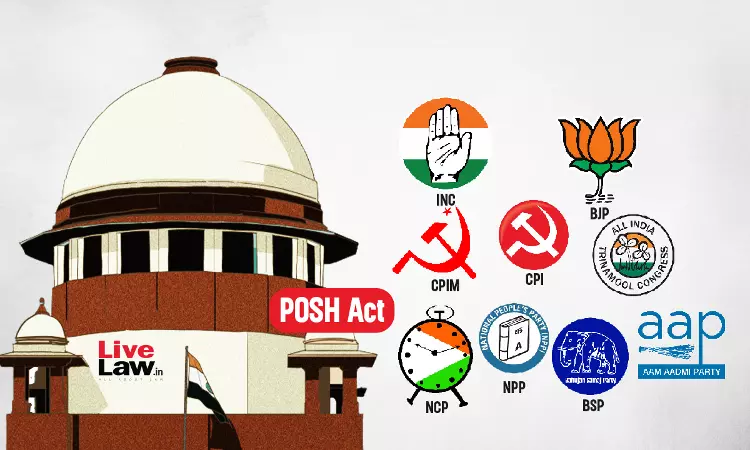In Plea To Apply POSH Act To Political Parties, Supreme Court Asks Petitioner To Approach Election Commission
Debby Jain
9 Dec 2024 12:13 PM IST

Next Story
9 Dec 2024 12:13 PM IST
The Supreme Court on Monday (December 9) disposed of a PIL seeking the application of the Sexual Harassment of Women at Workplace (Prevention, Prohibition, and Redressal) Act, 2013 (POSH Act) to political parties by asking the petitioner to first approach the Election Commission of India.A bench comprising Justice Surya Kant and Justice Manmohan passed the order on a PIL filed by Supreme...
